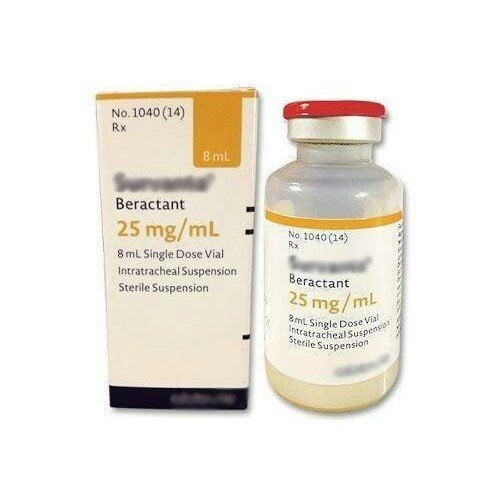This is an automatically translated article.
The article was professionally consulted by Specialist Doctor II Cao Thi Thanh - Pediatrician - Pediatrics - Neonatology Department - Vinmec Hai Phong International General HospitalNursing care for a low-birth-weight infant requires careful planning and is very different from that of a full-term infant. This is necessary to accommodate the immature digestive system of premature babies while still meeting the needs of a growing body.
1. How to nurture premature babies?
When a premature baby is born, within the first hour, the baby will need to be given nutrients through an intravenous line if they are born too prematurely or have breathing problems.
Conversely, if the function of the organs of the premature baby is temporarily complete, the doctor will consider giving the baby milk through a small tube inserted into the stomach. At this time, breast milk will be the best choice for the baby and the mother will express the milk to put it into the tube.
In the best case that the premature baby still has enough strength to latch on to the breast, encourage the baby to practice breastfeeding. However, if it is not possible to ensure that the baby is capable of self-feeding with the required amount of milk, it is necessary to actively nourish it through a catheter.

2. What is the source of milk used to nourish premature babies?
2.1. Breast milk Breast milk is the ideal source of nutrition for all infants, including premature babies. It is important that breast milk be available within a few hours after the baby is born to make the first food for the baby, to avoid complications of neonatal hypoglycemia.
However, for premature babies - especially those born before 34 weeks of pregnancy - the intestinal system is not fully functional. Accordingly, giving breast milk to infants at this time may be at risk of slow absorption, causing abdominal distension, reflux, loose stools or severe complications such as neonatal necrotizing enterocolitis.

2.2. Formula milk If breast milk is not yet available to the baby, formula can be substituted. However, the type of formula chosen should be appropriate for the age of the premature baby. Because babies born prematurely miss out on a lot of the nutrition that full-term babies have a chance to get from their mothers in the final weeks of pregnancy, including important vitamins and minerals that help babies grow. comprehensive development as well as help the child's immune system become stronger.
Furthermore, even though breast milk is best for babies, premature babies still need extra formula to provide the extra vitamins and minerals they need to grow like full-term babies.
3. Ways to nurture premature babies
3.1. Parenteral nutrition A catheter inserted into a vein allows standard nutrient solutions to be injected directly into the infant's circulation. This is the compulsory feeding method for babies born very prematurely, with low birth weight and with incomplete digestive system both functionally and anatomically.
Thus, the child can completely absorb the necessary substances without the body needing to process or metabolize anything. Initiation of parenteral nutrition can be as early as the first hour after birth and continues until the infant's intestinal tract can take on its full role.
3.2. Catheter Feeding A soft, flexible, and completely non-irritating plastic tube is inserted into the child's upper gastrointestinal tract, from the nostrils (mouth) through the cardial orifice into the stomach.
Even when an infant is fully capable of digesting milk, the infant cannot yet have a sucking reflex, the act of sucking at the breast is as complete as a full-term infant. In addition, the ability to coordinate suckling, swallowing and breathing is only achieved when the baby is between 32 and 34 weeks. So, if the baby was born before this week, the baby still needs to be fed through a tube. However, even with a tube in place, your baby can still practice sucking. Only when this capability is complete will tube feeding be terminated and the tube withdrawn.

3. How to monitor weight gain and growth in premature babies?
Weight gain is the primary criterion for determining the effectiveness of feeding preterm infants. Based on your baby's rate of growth and development from day to day and week to week, your pediatrician or dietitian will plan your baby's next nutrition and optimal feeding practices. if the baby is not gaining weight as expected.4. How to take care of premature babies at home?
If a premature baby is born with medical problems, the baby will be kept in the neonatal intensive care unit for a period of time to deal with these problems, including the care of the preterm infant light weight . However, after a while, when all physiological functions of the newborn have completed almost equivalent to that of a full-term infant, the infant will be removed from the intravenous catheter, the nasogastric tube and discharged home. At this time, the parent or caregiver will play the primary nurturing role for the child.
Baby food is maintained as in the hospital, i.e. breast milk, formula or a mixture of both. However, if the baby is less tolerant of milk than in the hospital or the rate of weight gain is not satisfactory, the mother needs to consult a pediatrician or a nutritionist as soon as possible to get it fixed.

Feed your baby as soon as he or she is hungry: Crying is a sign of hunger at this stage. late segment. Before that, babies may breastfeed better or drink more milk if you feed them right when they are just starting to get hungry. Signs are that the baby moves his body if he is sleeping or sucks his fingers, grasps objects around while awake. Feed only when your baby is fully awake: If your baby tends to fall asleep while feeding, try to keep him awake and stimulated by talking, making sounds, and noises. If your baby is sleeping but it's time to feed, wake him up by opening the blanket, changing his diaper, and wiping himself. Burp your baby during feedings: If your baby swallows air while feeding, his tummy will quickly become full and distended, leaving no room for milk. At this time, slow down your baby's feedings with your baby's body raised higher, rubbing her back to help her burp easier. Use breast compression: If you're breastfeeding, use your other hand to compress the entire breast near the end of the feed. This will help your baby have more milk at the end of the feeding and these drops will also be higher in calories. In short, being born early presents many challenges for survival. Among them, the most important is the issue of nurturing. The mode of feeding in preterm infants should be appropriate for the gestational age of the child at birth as well as the growth of the organs achieved and possible pathologies in the premature infant. Moreover, nutritional components also need to be provided in the most comprehensive way, helping children to take the first steps of life as firmly as their peers.
For more information, please contact the hospitals and clinics of Vinmec Health system nationwide
Please dial HOTLINE for more information or register for an appointment HERE. Download MyVinmec app to make appointments faster and to manage your bookings easily.
SEE MORE
Treatment and care of infants with regurgitation How is it normal for premature babies to gain weight? What health problems do premature babies have?














